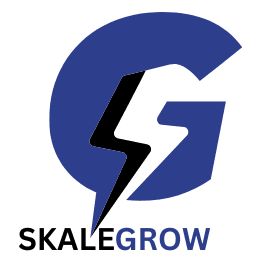Data privacy and compliance management were not once seen as something the marketing function should be worried about. But that has changed for good in recent years. With privacy talked about more often owing to the advent of iOS 14 and the ensuing third-party cookie deprecation by Google Chrome, marketers have started paying more attention to data privacy and how users’ data is managed.
However, not all marketers, entrepreneurs, and business leaders understand the importance of having a proper compliance management policy in place. More importantly, they do not know how to do it effectively. And interestingly, even some of the most advanced marketers out there do not know that there are platforms that will help them effectively manage consent and compliance across their website and the multitude of tools they use.
In this article, I attempt to break down some of these for you. So read along!
Why are data privacy and compliance management important for marketers?
After the introduction of the GPDR (General Data Protection Regulation) by the European Union, businesses had to significantly change their data management practices for European citizens and residents. With fines that can go up to 20 million euros (in the case of a major violation), there is no denying that companies have to take utmost care in managing user data. Not to mention the potential damage it could cause to a company’s brand image.
In addition, several state-wise laws have come into being in the US concerning data privacy – the CCPA (California Consumer Privacy Act) being the most popular and stringent of them. The other two active laws on data privacy in the US are the VCDPA (Virginia Consumer Data Protection Act), and the CPA (Colorado Privacy Act). Further, many other states have bills on data privacy under consideration that are soon expected to be enforced.
In addition, according to the UNCTAD (United Nations Conference on Trade and Development), 137 out of 194 countries had put in place legislation to secure the protection of data and privacy with 61% and 57% adoption in Africa and Asia respectively. So, it’s not just the US and Europe tightening data regulations. The trend is global.
Given these, it is a necessity than a luxury for businesses to have proper data protection rules in place. And especially for marketers, since they manage a ton of user data using their company’s website, CRM, marketing automation tools, etc., having best practices in terms of preserving data privacy is very critical.
What are the steps marketers should take to comply with data protection laws?
Though different data privacy laws have different rules and norms defined, there are several common anchors that govern them (giving the power to manage data back to consumers is the most prominent of them).
For instance, both the GDPR and CCPA apply to ‘natural persons’. However, GDPR offers consumers the right to opt out from any kind of data processing, while the CCPA gives the option to opt out only from selling or sharing data.
To learn more about the differences between the two regulations, please check out this document.
But broadly speaking, the following are the steps you need to take as a marketer to make sure your organization is data compliant:
- Clearly state your company’s privacy policy at all interactions where users share their data. These include contact us forms, webinar registration forms, tradeshows & conferences, hiring interactions, etc.
- Ensure you get consent from users at all points of data collection.
- Have proper documentation in place (as directed by various data privacy laws) to demonstrate data compliance.
- Appoint a DPO (Data Protection Officer) who will be the single point of contact for all data privacy matters, and make sure he/she is easily accessible by users through email or phone.
- Have the right tools and technology in place to enforce compliance across your marketing tech stack – from CRM to email marketing to database and marketing automation (this is where a consent management platform would also come in, which we will discuss in the next section).
- Implement a practice of conducting data privacy audits that will help you self-evaluate your organization for data compliance.
To learn in detail about the steps you need to perform to properly implement GDPR compliance, please check out the below article:
P.S:- GDPR by far is the strictest data compliance rule in place. Hence, if you follow its rules, you are more or less immune from major violations. But I advise you to always consult your legal and information security departments to make sure you comply with other laws since they differ when it comes to certain details.
How do consent management platforms help in data compliance?
Before we look at why and how CMPs (Consent Management Platforms) make data compliance easier, let us first understand what they mean:
A CMP is a tool used by websites to help users easily manage their data permissions. While a CMP enables users to give and withdraw consent, it acts as a platform for website owners to request, receive, and store consent. A CMP also typically shares with users the list of vendors or external parties with whom the website shares user information, and why the data is shared with them.
Now, why should anybody use a consent management platform? What are the advantages?
First, let me clarify that it is not necessary for you to use a CMP to comply with data regulations, as long as you are able to manage it effectively by having the right processes and systems in place. Also, you are exempted from these data privacy laws if you don’t collect any PII (Personally Identifiable Information) or are running a subscription-based platform that collects user consent during the time of signup (like LinkedIn or Twitter).
Now let us look at the advantages of using a CMP:
- You get a single easy-to-use interface to manage user consent.
- The data privacy landscape is ever-changing with new laws like LGPD (Lei Geral de Proteção de Dados) and POPIA (Protection Of Personal Information Act) coming up. There are also changes happening to existing laws. For instance, the CCPA is being modified by the CPRA (California Privacy Rights Act) and the amendments are in effect from January 2023. Given these, it is extremely difficult to keep up with multiple changes. CMPs make this job easy for you by adapting to these changes quickly.
- Using a CMP helps establish trust and elevates your brand value in today’s heavily privacy-driven world.
- For publishers, having a CMP helps to optimize and improve advertisement revenue.
Consent Management Platforms you should explore
Now that we understand the importance of data compliance and the advantages of having a CMP, let us look at a few popular CMPs available in the market today.
1. Usercentrics
Usercentrics is an enterprise consent management platform that will help you easily obtain, manage, and optimize consent for your website across multiple devices. It covers all the major data privacy laws including the GDPR, CCPA, LGPD, and POPIA.
Have a look at the below video to get a quick overview of Usercentrics:
Usercentrics is compatible with commonly used marketing tools and platforms like Google Analytics, Adobe Analytics, Google Adwords, Facebook, etc.
2. Quantcast Choice
Quantcast Choice is a CMP that primarily positions itself as a platform for publishers and advertisers to optimize their ad revenue using easy consent management. It also makes it easy for you to manage and publish the names of vendors who have access to your user data.
Check out the below video to get a glimpse of what the platform is all about:
3. OneTrust
OneTrust is an end-to-end trust platform for businesses. Consent management is one of the solutions offered by the company. The tool offers an easy-to-use self-serve interface to manage all types of consent interactions with your website’s users.
Given below is the overview video of OneTrust’s consent management solution:
In addition to the ones mentioned above, there are a few other popular CMPs including DataGrail, Cookiebot, Osano, etc. I leave it to you to do your own research and further reading on this.
That’s all I wanted to cover in this article. Hope this was a helpful read.
Skalegrow – B2B brand marketing agency
With marketing getting tougher and tougher, every wrong foot you make might hamper your growth. What you need is the right guidance and a helping hand. This is where Skalegrow can make a sea of difference.
Skalegrow helps IT, tech, SaaS, and embedded systems companies leverage new-age marketing tactics to grow their business. Check out the below intro video to learn more about what Skalegrow brings to the table:
Brand marketing is one of the areas we specialize in. Whether it’s in the form of creating great content, crafting a unique positioning, or ensuring a consistent brand identity, we can help. Write to us at info@skalegrow.com for more details.
About the author

Naseef KPO is the Founder and CEO of Skalegrow. He comes with rich experience across multiple areas of B2B marketing including content marketing, demand generation, SEO, account-based marketing, marketing analytics, revenue attribution, marketing technology, etc. He writes thought-provoking and relevant articles on The Skalegrow Blog and his weekly LinkedIn newsletter Elevate Your Marketing.
Prior to starting Skalegrow, Naseef led large marketing teams in multi-million dollar B2B organizations where he made significant contributions to the topline growth of the business. He has also appeared on numerous podcasts where he shared his thoughts on trending marketing topics such as the application of AI in marketing, startup marketing, ABM, and B2B content marketing, just to name a few. Being the founder of Skalegrow, he is currently focusing on helping its clients stay ahead of their competition by using innovative yet practical marketing tactics.
You can connect with Naseef KPO on LinkedIn.


